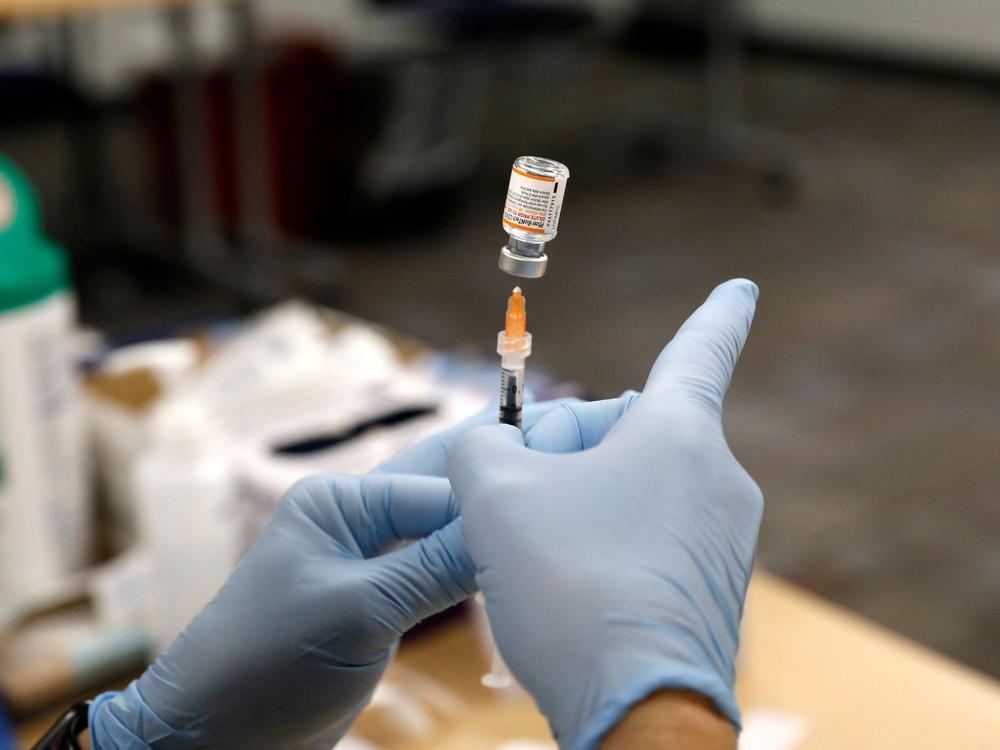Section Branding
Header Content
The FDA authorizes a Pfizer booster shot for children ages 12 to 15
Primary Content
Updated January 3, 2022 at 11:34 AM ET
The Food and Drug Administration has authorized the use of a Pfizer-BioNTech booster in adolescents 12 to 15 years old.
The agency on Monday also shortened the time between the completion of primary vaccination of the Pfizer-BioNTech COVID-19 vaccine and a booster dose to five months from six.
Finally, the FDA allowed for a third dose of vaccine in immunocompromised children 5 to 11 years of age.
The director of the Centers for Disease Control and Prevention, Rochelle Walensky, must still weigh in with a recommendation on the FDA's announcement before the changes can take effect.
"Throughout the pandemic, as the virus that causes COVID-19 has continuously evolved, the need for the FDA to quickly adapt has meant using the best available science to make informed decisions with the health and safety of the American public in mind," acting FDA Commissioner Janet Woodcock, M.D., said in a statement.
Woodcock said it is critical for the public to take "effective, life-saving preventative measures," including booster shots, during the current surge of infections driven by the omicron variant.
The decision comes at a moment when more kids are getting sick
The authorization comes in the midst of an explosion of COVID-19 cases nationwide driven by the omicron variant. Though the new strain appears milder in vaccinated people, there has been a spike in pediatric hospitalizations.
Many schools have delayed the resumption of in-person classes in the new year due to the rapid rise in cases as well as faculty and staff home sick with the virus.
"Now, in the next few weeks, it will be challenging for some schools given the rise in cases. We know some schools made temporary emergency decisions based on their staffing in particular," Dr. Vivek Murthy, the U.S. surgeon general, told NPR's Morning Edition on Monday.
"But our goal should be to make sure that these disruptions are short-lived and we can get our kids back to school safely. Our best chance of doing that is to implement the mitigation measures that we know have worked to get our kids vaccinated," he added.
Israel has already been boosting children, finding side effects are rare
The FDA said it reached its decision after reviewing data from Israel, which included information on 6,300 people ages 12-15 who received a booster shot at least five months after their initial two-dose vaccination. The data showed no new cases of two possible side effects that had been observed in some young people who received the vaccine — myocarditis, an inflammation of the heart, and pericarditis, an inflammation of the saclike tissue surrounding the heart.
The CDC recommended the Pfizer vaccine for children 12-15 in May and for kids 5-11 in November. There is still no vaccine authorized in the U.S. for children under age 5.
Copyright 2022 NPR. To see more, visit https://www.npr.org.

